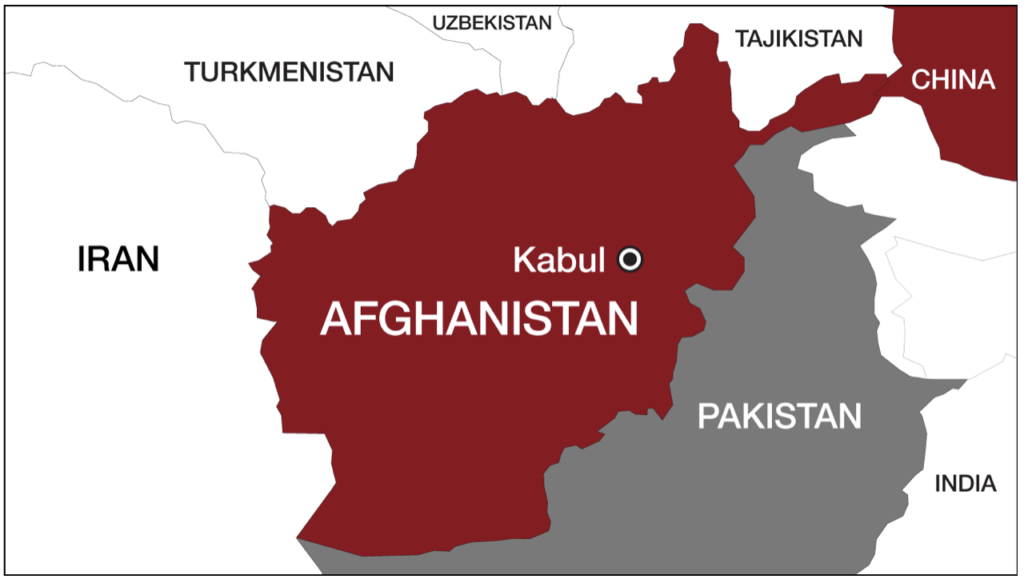
On Sunday, Aug. 22, Taliban fighters retook Kabul, the capital of Afghanistan.
The Taliban’s return to control of Afghanistan came three weeks before the 20-year anniversary of the 9/11 terrorist attacks on the United States and almost 20 years since the U.S. military removed the Taliban from power.
American military forces entered Afghanistan with their allies in late 2001 to track down and defeat Al Qaeda terrorists who were responsible for planning 9/11. In the process the Taliban were removed from power as they were consistently providing shelter for terrorist organizations within their borders.
Under previous Taliban rule women were not allowed to work, were not allowed to leave their homes without a male relative and were not allowed to go to school after the age of eight.
Kirkwood Community College student Izy Doughty, computer software development, said she believes the Taliban’s treatment of women has to do with control. “You keep someone ignorant. They can’t go much further than what you expect them to…Not allowing them to be academically educated, means you can control them,” Doughty said.
The Taliban also has a history of eliminating aspects of Afghan culture that don’t align with their religious beliefs. Since returning to power the Taliban has already banned most forms of musical expression and killed a beloved folk singer as reported by CNN.com.
Upon learning of this development Kirkwood student, Johanna Wallace, digital arts, noted that no matter where a person is from music allows people to stand out and express themselves. She believes the Taliban have stolen this self-expression from the people of Afghanistan.
The speed with which the Taliban defeated the Afghan Armed Forces and retook Kabul in August of this year came as a shock to military planners and political leaders in the U.S. but as reported by The New York Times, classified intelligence reports throughout the summer showed that the fall of Afghanistan into Taliban hands was only a matter of time.
The U.S. agreed with the Taliban to leave the country by Aug. 31, but with the rapid fall of Kabul the city turned chaotic as many Afghans, Americans and citizens of other countries, fearing death or persecution for a variety of reasons, desperately attempted to escape before Taliban rule was fully in place. This led to images of people clinging to planes as they took off from the Kabul airport.
As America and the world commemorate the 20-year anniversary of 9/11, the window for conducting evacuations closes and control returns to the Taliban, the future of Afghanistan is uncertain.
The Taliban has made some claims that they will have a less oppressive regime, but it is difficult to judge their sincerity from the United States. Doughty observed, “It all boils down to control. If they feel they can come to power and get control they will probably say what they need to say within limits, to make people comfortable.”
The uncertainty for women in Afghanistan is especially great but Doughty said she sees a silver lining with a caveat. “I think in the far future there will be freedom for women but it’s going to hurt. It’s going to be a lot like it was for women all over the world, and still is, to get equal rights. There were women in America who suffered for suffrage…I think eventually it is winnable but it’s going to hurt like hell.”
As for America’s 20-year endeavor in Afghanistan, Doughty concluded, “To go to war is not something to be taken lightly at all. And both sides suffer. All sides suffer, actually. It doesn’t matter if you’re in the war or not. It affects trade, it affects relationships and it affects how future generations interact with each other.”
According to the Costs of War project compiled by the Watson Institute at Brown University the war in Afghanistan cost $2.313 trillion, not counting interest payments or future costs for the care of veterans. Direct war deaths of military personnel from the U.S., Afghanistan and their allies, Taliban and Al Qaeda fighters, contractors and civilians is between 238,000 to 241,000 deaths in Afghanistan and neighboring Pakistan.
Categories: News, World News










